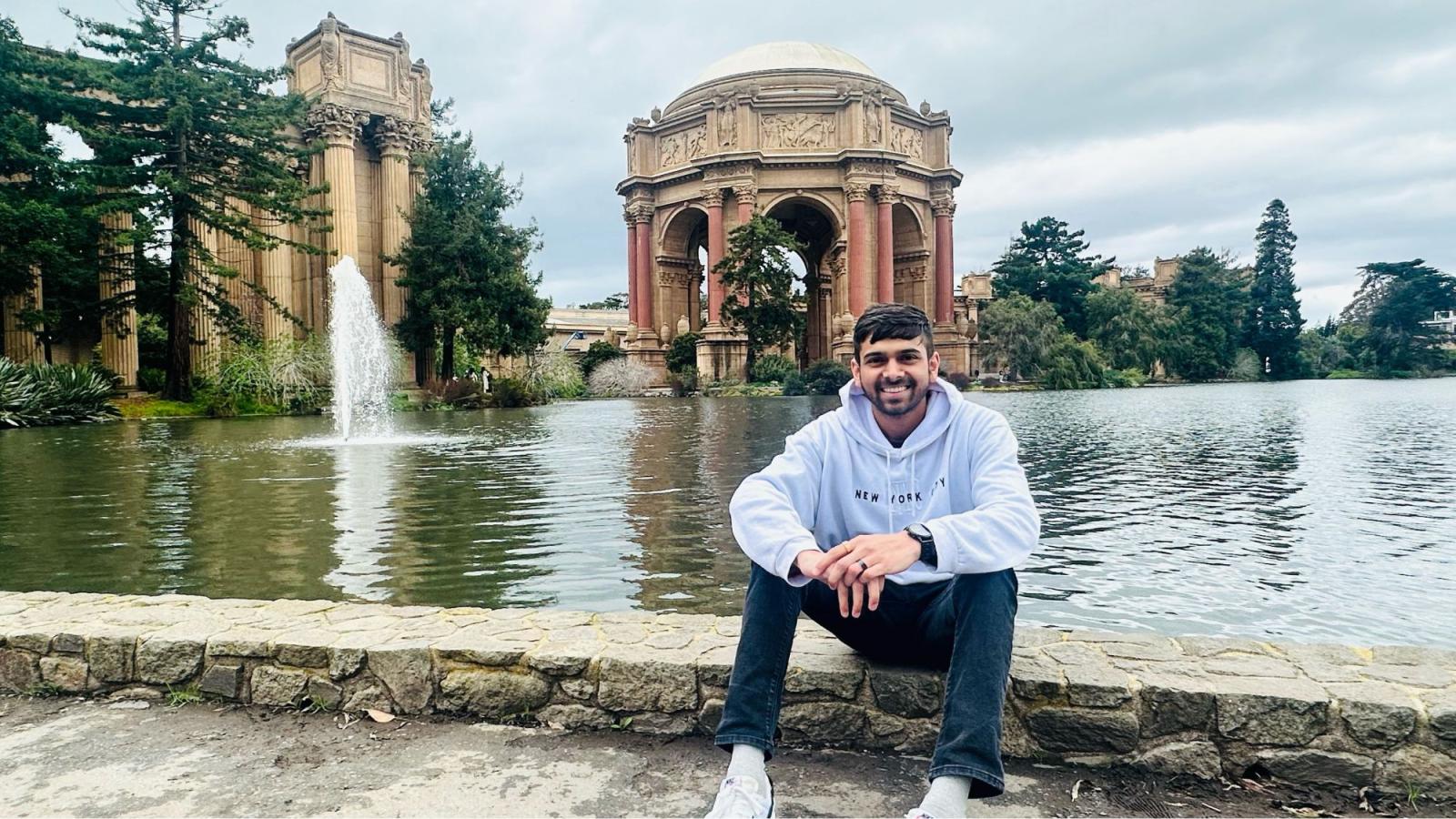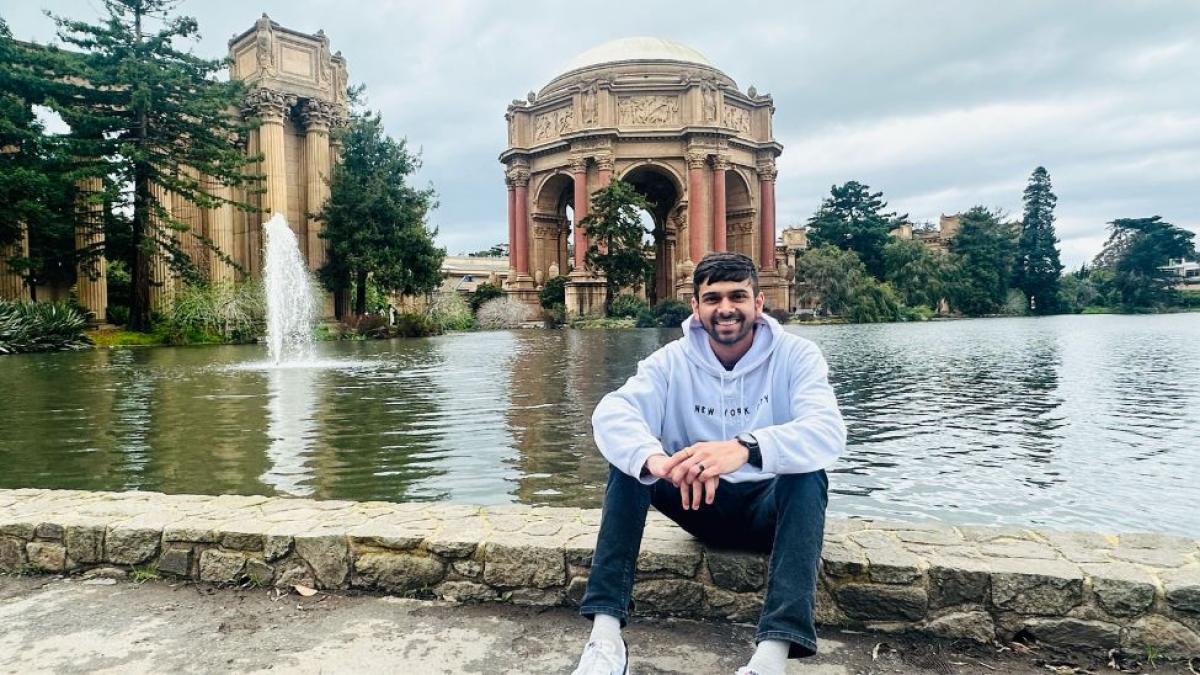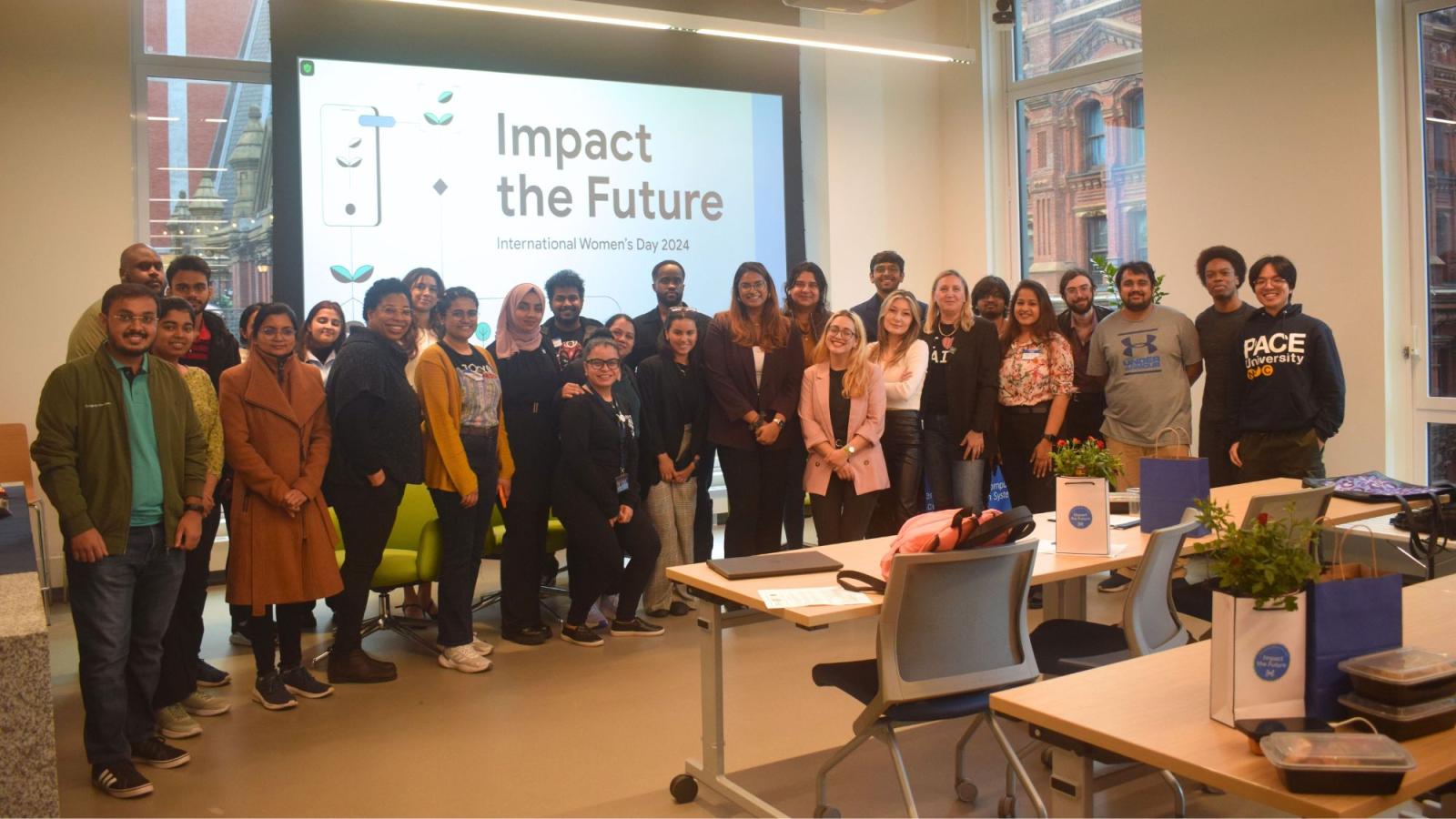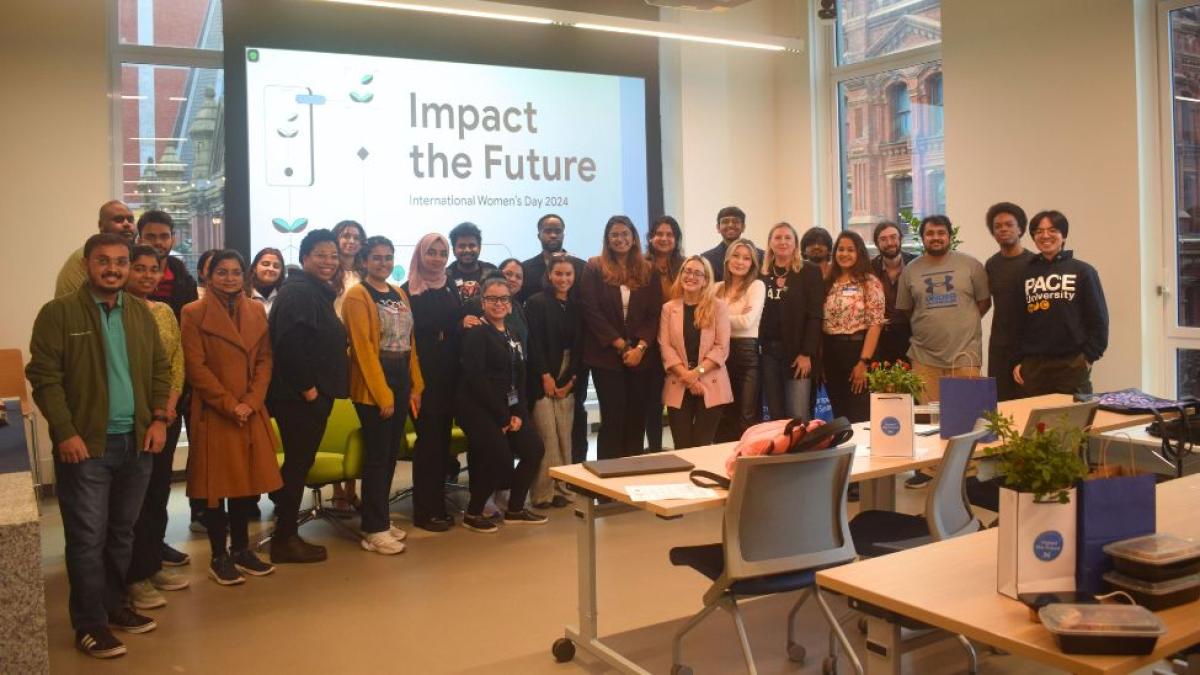Pace Students to Premiere Latest Documentary at Jacob Burns Film Center
Pace University’s documentary film team – PaceDocs – is set to premiere “The Cooper: Crafting the Soul of the Cask” at 7 p.m. this Thursday, May 2 at the Jacob Burns Film Center in Pleasantville.
Coding His Path: A Student's Quest for AI Mastery at Pace University
Om Gaikhe (MS in Data Science ’24) is a committed senior at Pace University's Seidenberg School of Computer Science and Information Systems. Om blends rigorous academics with active campus engagement, delving deep into software development and innovative technologies.


Om Gaikhe (MS in Data Science ’24) is a committed senior at Pace University's Seidenberg School of Computer Science and Information Systems. Om blends rigorous academics with active campus engagement, delving deep into software development and innovative technologies. His journey started with an early interest in programming and led him to specialization in artificial intelligence. As a student who is always participating in hackathons, contributing to research, and mentoring peers, Om embodies the collaborative, ambitious spirit of the Seidenberg community, aiming to make a significant impact in the tech industry.
What initially attracted you to Pace University, and how has the school lived up to your expectations?
Shortlisting the right universities for me to study away from home was a crucial step, especially coming from a business & finance background. Not only did I want to learn more about tech, but I also wanted to be able to apply the knowledge I had consumed before. What really attracted me to Seidenberg was the flexible electives that I could choose as I proceed with my education. Data Science has multiple applicability in the real world, but Seidenberg offered more concentrated electives around multiple fields including MBA, Finance, Marketing, Information systems & Economics. It suited just right with what I was seeking.
Can you describe a class or project at Pace that was particularly impactful for you? What made it stand out?
A class at Seidenberg that deeply impacted me was my capstone class, inspired by a paper I co-authored with Dr. Christelle Scharff and our team, titled “AI Strategies: National Strategies and Regulations.” This project, which won the Best Paper Award at the RII 2024 Research and Innovation Forum in Ravello, Italy, involved developing an AI-driven chatbot that used BERTopic and Llama 2 models to streamline literature reviews for machine learning projects. What stood out was not only the advanced technical skills I developed but also how the project transformed my approach to research. The chatbot, which handled a database of over 1.7 million machine learning publications, not only enhanced research efficiency but also inspired users by making vast amounts of information easily navigable. This capstone project was a major milestone in my academic career, showcasing how technology can revolutionize traditional academic practices and highlighting the transformative potential of intuitive AI in academic research.
How have your experiences outside the classroom, such as in clubs or sports, enhanced your education at Pace?
Representing Pace Esports team the Lapis Blus, was a splendid experience full of fun, teamwork, challenge, and healthy competition. It really helps me connect with people learning different tracks of careers. I made a few friends, we played, we won, we lost, overall, it was a good place to be in.
What has been your favorite moment or memory from your time at Pace so far?
One of my most memorable experiences at Pace occurred on an eventful day when New York City experienced a 4.8 magnitude earthquake. I was part of the organizing team for the Google Women Techmakers event, held in celebration of International Women’s Day at Seidenberg. Despite the unexpected shake-up, the event was a great success. Adding to the thrill of the day, I had the opportunity to take the stage and present a paper I co-authored, titled “Inclusion Ethics in AI: Use Cases in African Fashion”. It was both a scary and thrilling day, packed with learning and unique experiences. My friends & I always have a good laugh about that day!
What advice would you give to prospective students considering Pace University?
There will be a time when things may feel overwhelming and that’s okay. Ask for help; you will find that help will always be given to those who ask for it. My advice for any prospective student would be to remember that college/university is all about the process of learning and growth. It’s a process and you must be in love with it, so that one takes initiative to work on it. Be grateful for small victories along the way and trust that there are better times ahead if you stay on the course.
Can you share a story about a professor or staff member at Pace who has significantly influenced your academic journey?
My academic journey at Pace has been profoundly influenced by the mentorship of Dr. Kaleemunnisa and Dr. Christelle Scharff. Dr. Kaleema first recognized my potential during my initial year at Seidenberg. Her guidance was crucial; she encouraged me to seek help and introduced me to Dr. Scharff, who has been instrumental in my development. Under Dr. Scharff’s mentorship, I evolved as a research and graduate assistant, making significant contributions to the fields of AI and ML. Together, we co-authored the paper "AI Strategies: National Strategies and Regulations". Dr. Kaleemunnisa's encouragement to seek help when facing challenges and Dr. Scharff’s patient mentorship opened doors to numerous research opportunities and inspired me to embrace them fully. Their support has been invaluable in shaping my academic path.
How do you engage with the Pace community and the wider environment of New York City in your studies or extracurricular activities?
Volunteering! I think that’s been my go-to way to give back to the Seidenberg community. Helping me with gaining extra knowledge and wisdom from people across the world. I had the opportunity to volunteer at the Opportunities in Africa Summit, and it was an experience to remember. The perspectives I learned, life-stories I heard, and the networking goes a long way. Probably one of the best ways to attend conferences without breaking your wallet as a student!
A New York Student Sues School District After Suspension for Using Anti-Gay Terms; Says They Were Used Ironically
The outlet also contacted Bennett Gershman, a constitutional law professor at Pace University's Elisabeth Haub School of Law, who said he was "skeptical" of Horace Greeley's move to discipline the student, given the guardrails laid out in the Mahanoy case. "I think the school goes beyond its authority to stop students from engaging in this type of speech-related activity when there is no clear connection between their communications and anything related to a special need of the school," he said. "The school really has no place here unless it directly affects academics in school or individuals in school."
The Cooper: Crafting the Soul of the Cask
The trailer for 2024 PaceDocs documentary, “The Cooper: Crafting the Soul of the Cask”.
On the Move
Pace University hires Zachariah Hosseini as CMO and VP for university relations. At Pace, Hosseini will oversee the marketing, communications and government affairs teams for the University and its campuses in New York City,
Innovation and Inclusion: Google Women TechMakers International Women's Day at Seidenberg
On April 5, 2024, the Seidenberg School of Computer Science and Information Systems at Pace University transformed into a vibrant hub for celebrating and empowering women in technology by hosting a Google Women TechMakers International Women's Day event.


On April 5, 2024, the Seidenberg School of Computer Science and Information Systems at Pace University transformed into a vibrant hub for celebrating and empowering women in technology. The event, part of Google Women TechMakers International Women's Day (IWD) Event Series, aimed to bring together women from various tech backgrounds through engaging speakers, interactive workshops, and ample networking opportunities.
Dr. Jonathan Hill, Dean of the Seidenberg School, alongside Katie Todd, co-director of the AI Lab at Pace, kicked off the event with welcome and remarks that highlighted the significance of fostering supportive environments for women in the tech industry.
One of the standout sessions was led by Dr. Christelle Scharff, Google Women TechMakers and co-director of the AI Lab at Pace, and featured research assistants Om Gaikhe and Samyak Meshram. The session explored how artificial intelligence can revolutionize the design of fabric patterns. Following this, Yousuf Aafreen, a student from Pace, announced the Gen AI Competition, challenging participants to use Google Gemini AI model to create innovative AI solutions during the event.
The afternoon kicked off with a "Build with AI" session, where Kartik Derasari, a Google Developer Expert (GDE), provided an overview of Google Gemini and a hands-on workshop permitting participants to build practical tech solutions. The day continued with a critical look at the ethical considerations of AI by Dr. Olga Scrivner, Google Women TechMakers and Assistant Professor of Computer Science at Rose-Hulman Institute of Technology. Her virtual talk, "Be Aware of GenAI: Ethics, Biases, and Disruptive Innovation," emphasized the importance of ethical AI development.
Miriam O'Shea's session, "Unlock the Next Iteration of YOU," offered personal insights on career growth and personal development within the tech industry. The day wrapped up with a dynamic panel discussion titled "Tech Women in Action," featuring Dr. Kaleemunnisa Lnu, Reginé Gilbert, and Krystyn Gutu, who shared personal moments, experiences and strategies for success in tech fields.
The event not only celebrated the achievements of women in technology but also underscored Pace University's commitment to inclusivity and innovation. Thanks to wonderful volunteers, Begimai Zhumakova, Om Gaikhe, Yousuf Aafreen, Darsh Joshi, Tiandra Lall, and Melanie Madera, the event was a success. The gathering left participants inspired and more connected, equipped with new insights and tools to navigate and excel in the AI sector.
Trailblazers in Clean Energy
VP of Campus Planning and Facilities Ibi Yolas made City & State’s 2024 Trailblazers in Energy list
Ibi Yolas grew up around construction sites, and now has carved out a niche transforming the physical plans and implementing new green technologies at institutions of higher education. At Pace University, longtime environmental law leader Yolas has been developing projects to green the university via the electrification of its 64 buildings. Yolas, who was previously in a similar role at St. John’s University, is transforming Pace’s flagship, One Pace Plaza, into an innovative electrified building. The transformation includes plans to integrate a heat pump plant, a project that has received state funding.
U.S. Department of State Selects 15 Fellows for the Foreign Affairs Information Technology Fellowship 2024 Cohort
The U.S. Department of State recently selected 15 talented individuals for the 2024 cohort of the notable Foreign Affairs Information Technology (FAIT) Fellowship— this includes Seidenberg student Uday Brathwaite ’27, KDVR reports.
Exchange Programs That Assist With LL.M. Mobility
Haub Law Associate Director of Graduate Programs and International Affairs Diana Ramirez was featured in an interview with The International Jurist providing her advice for LLM students.
Providing Shelter: In Memory of Roy Echols and Jackie Robinson
Law Professor John Nolon writes a piece in The Yonkers Ledger about the untold story of how Whitney Young Manor in Yonkers was developed to provide shelter to lower income families.